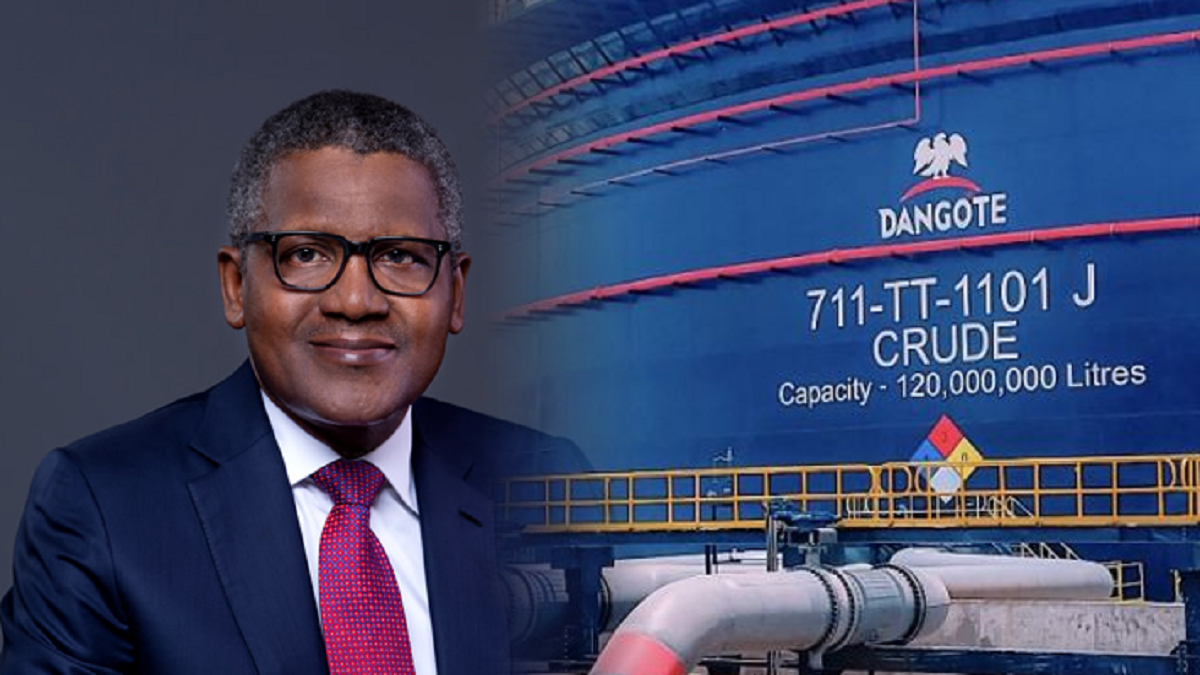Nigeria is on the verge of another major industrial milestone as Aliko Dangote, Africa’s richest man, announces an ambitious plan to expand the Dangote Petroleum Refinery’s capacity from 650,000 barrels per day (bpd) to an incredible 1.4 million bpd. The move positions the Lagos-based refinery to become the largest single refining complex in the world, surpassing India’s famed Reliance Jamnagar facility.
The expansion marks a significant leap forward for Nigeria’s long-standing quest for energy independence, aiming to reduce the nation’s reliance on imported refined fuel products. Once fully operational, the refinery will not only meet domestic fuel needs but also transform Nigeria into a major exporter of refined petroleum products across Africa and beyond.
According to officials, the project will be completed within three years, utilizing existing infrastructure such as the deep-sea port, pipelines, and energy facilities. The expansion will be supported through a combination of internal cash flow, debt financing, and the potential public listing of 5–10 percent of the refinery’s shares. Dangote is also reportedly in discussions with global investors and international finance institutions to raise several billion dollars to support the upgrade.
The financial commitment is enormous, but so is the impact. The first phase of the refinery already costs about $20 billion, making it one of the most capital-intensive private industrial projects in Africa’s history. With the new capacity increase, experts estimate that tens of thousands of new jobs will be created during construction and operation, with about 85 percent of roles going to Nigerians.
Beyond boosting Nigeria’s fuel production, the refinery’s expansion will also include upgrading fuel output from Euro V to Euro VI standards, increasing environmental efficiency and fuel quality. The facility’s power generation capacity will double from 500 megawatts to 1,000 megawatts, ensuring self-sufficiency. Moreover, petrochemical production, particularly polypropylene, will expand from 900,000 metric tonnes to about 2.4 million metric tonnes annually, further strengthening the nation’s industrial base.
For Nigeria, a country that exports crude oil but imports most of its refined products, this development represents a crucial turning point. By expanding its refining capability, the country will save billions of dollars annually on fuel imports while boosting its foreign exchange reserves through exports. Economists predict that this could also help stabilize the naira, reduce inflation, and support broader industrialization across the region.
However, the journey is not without challenges. The refinery’s success hinges on consistent crude oil supply, stable government policy, and reliable infrastructure. Dangote himself has acknowledged the hurdles, particularly around feedstock supply and logistics. The Nigerian National Petroleum Company (NNPC) will need to ensure steady crude delivery to sustain the refinery’s massive throughput.
Still, the optimism surrounding the project is palpable. For decades, Nigeria’s downstream sector has struggled under the weight of fuel scarcity, import dependency, and subsidy issues. Dangote’s refinery, now expanding to an unprecedented capacity, could be the game changer that rewrites that narrative.
If achieved as planned, the 1.4 million bpd target would make the Dangote Refinery a global energy powerhouse, transforming Nigeria into a refining hub for West Africa and beyond. It would signal a new era where Africa is not just a supplier of raw materials but a major player in the global refined products market.
This bold move by Aliko Dangote reinforces his vision of Africa rising through industrial transformation—a vision where homegrown innovation, infrastructure, and investment drive progress from within the continent.
The refinery expansion is more than an industrial upgrade—it’s a statement of confidence in Africa’s future














Leave a comment